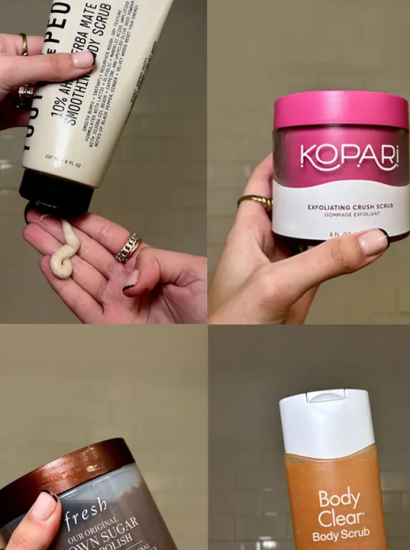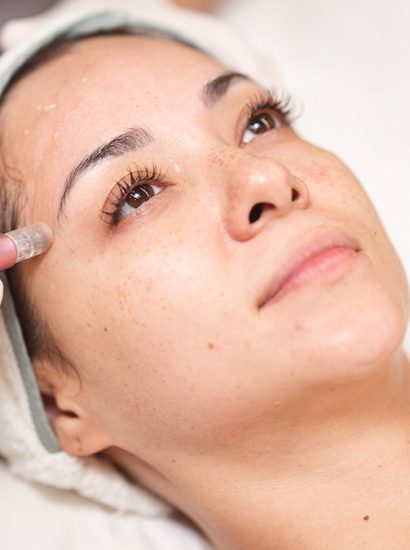If you have sensitive skin, you know the struggle—redness, irritation, and breakouts from even the most basic products. But don’t worry! A carefully crafted skincare routine for sensitive skin can help you achieve a calm, hydrated, and radiant complexion. The key? Choosing gentle, fragrance-free products and following a consistent routine tailored to your skin’s needs.
In this guide, we’ll break down an ultimate skincare routine for sensitive skin, covering everything from cleansing to moisturizing, plus expert tips to prevent flare-ups. Ready to say goodbye to irritation? Let’s dive in!
Cleansing: Start with a Gentle, Hydrating Cleanser
The foundation of any skincare routine is cleansing, but if you have sensitive skin, you must be extra careful with your choice of cleanser.
What to Look For in a Cleanser?
✔️ Fragrance-free & alcohol-free
✔️ Hydrating ingredients like glycerin & ceramides
✔️ Cream or gel-based (avoid foaming cleansers with sulfates)
Best Cleansing Routine for Sensitive Skin:
- Morning: Wash your face with lukewarm water and a mild cleanser. Avoid scrubbing, as it can trigger irritation.
- Evening: Use the same gentle cleanser to remove dirt and excess oil. If you wear makeup, opt for a micellar water or cleansing balm before your main cleanser.
Pro Tip: Never use harsh exfoliating cleansers or soaps with artificial fragrances, as they strip your skin’s natural barrier, making it more prone to redness.
Toning: Hydrate & Soothe Without Alcohol
Toners help balance your skin’s pH and prep it for better absorption of serums and moisturizers. However, many toners contain alcohol, which can be irritating.
The Best Toners for Sensitive Skin:
✅ Alcohol-free & fragrance-free
✅ Soothing ingredients like rose water, aloe vera, or chamomile
✅ Hydrating properties (look for hyaluronic acid or cucumber extract)
How to Use
- After cleansing, apply a small amount of toner to a cotton pad and gently press it onto your face.
- You can also spritz a misting toner directly onto your skin for extra hydration.
Avoid: Astringent toners with witch hazel, menthol, or citrus extracts, as they can trigger sensitivity.
Serum: Strengthen Your Skin Barrier
A good serum can work wonders for sensitive skin by providing deep hydration and reducing inflammation.
Best Ingredients for Sensitive Skin Serums:
✔️ Hyaluronic Acid – Hydrates without clogging pores
✔️ Niacinamide – Soothes redness and strengthens skin
✔️ Centella Asiatica (Cica) – Calms irritation and repairs the skin barrier
✔️ Vitamin B5 – Promotes healing and reduces dryness
How to Use
- Apply 2-3 drops of serum right after toning while your skin is still damp.
- Gently press it into your skin rather than rubbing.
Avoid: Strong active ingredients like retinol, glycolic acid, or high concentrations of vitamin C, as they can be too harsh.
Moisturizing: Lock in Hydration & Protect Your Skin Barrier
A good moisturizer is non-negotiable for sensitive skin. It locks in hydration, prevents irritation, and keeps your skin soft and supple.
What to Look For in a Moisturizer?
✅ Fragrance-free & lightweight
✅ Ingredients like ceramides, squalane, or shea butter
✅ Non-comedogenic (won’t clog pores)
How to Apply
- Use a pea-sized amount and gently massage it into your skin after applying your serum.
- For extra hydration, choose a thicker moisturizer at night.
Pro Tip: Avoid silicones and petroleum-based products, as they can trap heat and worsen sensitivity.
Sun Protection: The Most Important Step!
Sun exposure can worsen sensitivity, trigger redness, and cause long-term damage. Wearing sunscreen daily is a MUST.
Best Sunscreens for Sensitive Skin
✔️ Mineral-based (zinc oxide or titanium dioxide)
✔️ SPF 30 or higher
✔️ Fragrance-free and non-comedogenic
How to Use
- Apply sunscreen every morning, even on cloudy days.
- Reapply every 2-3 hours if you’re outdoors.
Avoid: Chemical sunscreens with oxybenzone and avobenzone, as they can cause irritation.
Extra Tips to Keep Sensitive Skin Happy
✅ Patch Test New Products: Always test a small amount before using anything new on your face.
✅ Use Lukewarm Water: Hot water can strip your skin’s moisture.
✅ Avoid Over-Exfoliating: Stick to gentle exfoliation (once a week) with a mild enzyme exfoliator instead of harsh scrubs.
✅ Stay Hydrated: Drink plenty of water to keep your skin naturally glowing.
✅ Change Pillowcases Weekly: Dirty pillowcases can harbor bacteria that irritate sensitive skin.
Conclusion
Finding the perfect skincare routine for sensitive skin doesn’t have to be overwhelming. With the right gentle, hydrating, and protective products, you can keep your skin calm and healthy. Stick to simple, fragrance-free formulas, apply sunscreen daily, and avoid irritating ingredients.
By following this ultimate routine, you’ll say goodbye to irritation and hello to a happy, glowing complexion!
FAQs
What should I avoid in a skincare routine for sensitive skin?
Avoid harsh alcohol-based toners, artificial fragrances, essential oils, sulfates, and strong exfoliants like glycolic acid or retinoids. These can trigger irritation.
How do I know if a product is safe for my sensitive skin?
Look for labels that say “fragrance-free,” “hypoallergenic,” and “dermatologist-tested.” Always do a patch test before trying a new product.
Can I use makeup if I have sensitive skin?
Yes, but choose non-comedogenic, fragrance-free makeup and always remove it gently before bed with a sensitive-skin-friendly cleanser.
Is exfoliating bad for sensitive skin?
Not necessarily! Gentle exfoliation (once a week) with an enzyme-based or lactic acid exfoliant can help without causing irritation.
What’s the best way to reduce redness in sensitive skin?
Use soothing ingredients like aloe vera, green tea extract, and Centella Asiatica. Avoid hot showers and alcohol-based products.
How long does it take to see results from a sensitive skin routine?
With the right routine, you should notice less redness and irritation within 2-3 weeks. Consistency is key!
Also read: How to Reduce Acne Scars: Expert Tips for a Flawless Complexion





